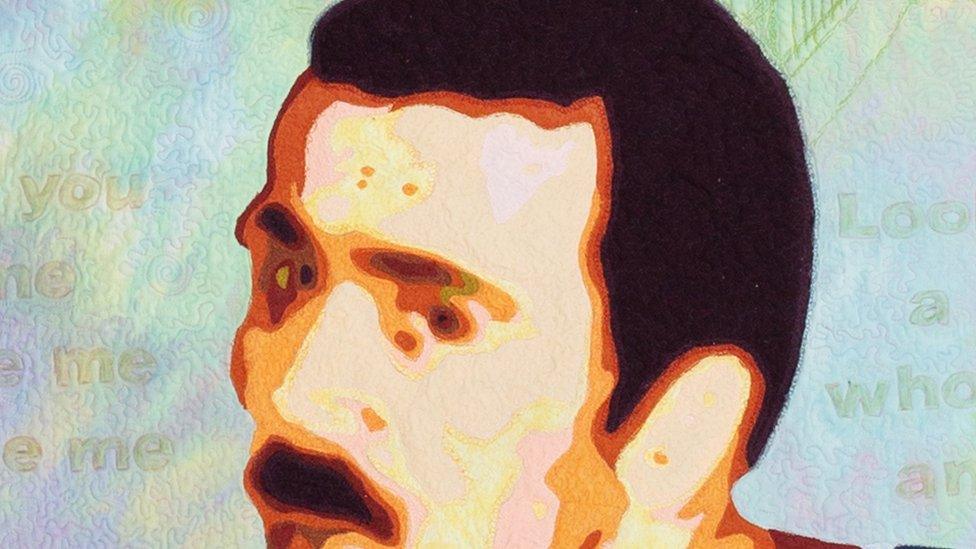Quilt celebrating Terrence Higgins displayed for first time in Sheffield
- Published

A quilt to remember Terrence Higgins is to go on display at Sheffield's Millennium Gallery from 9 December
A quilt to remember Terrence Higgins, the first named person in the UK to die of an Aids-related illness, will be displayed in Sheffield.
The quilt forms part of the Ruskin exhibition to celebrate handcrafts at the Millennium Gallery on 9 December.
After Mr Higgins died in 1982, the Terrence Higgins Trust was set up to raise awareness about HIV.
The charity said: "The quilt is a testimony to the man - when Terry died, HIV didn't even have a name."
The exhibition will explore the legacy of Victorian writer and artist, John Ruskin, who believed in using handmaking skills to improve people's lives.
Quilt making has been used since the 1980s HIV epidemic to celebrate the lives of those lost to Aids and as a way of communal grieving.
Mr Higgins' quilt has eight panels and each one represents a different aspect of his life including his time in the Royal Navy, as a Hansard report in Parliament and a DJ at the London gay club, Heaven.
It was created by "talented quilters" from around the country and The Quilters' Guild, said the Trust, but the final panel was made by service users, volunteers and staff from the charity.

Quilting has been linked to Aids awareness since the 1980s
The message "can't pass it on" also appears, meaning that today someone living with HIV and on effective treatment cannot pass HIV on to partners.
Richard Angell, chief executive of the Terrence Higgins Trust,, external said: "Everyone who worked on the quilt has experienced for themselves the positive power of handmaking and the space it allowed to find out more about Terry, the HIV epidemic and the incredible progress that's been made in the last four decades."
Ashley Gallant, curator, Ruskin Collections, added: "Today, the act of handmaking continues to make a positive difference to people's lives in so many ways."

Follow BBC Yorkshire on Facebook, external, X (formerly Twitter), external and Instagram, external. Send your story ideas to yorkslincs.news@bbc.co.uk, external.
Related topics
- Published1 December 2023
